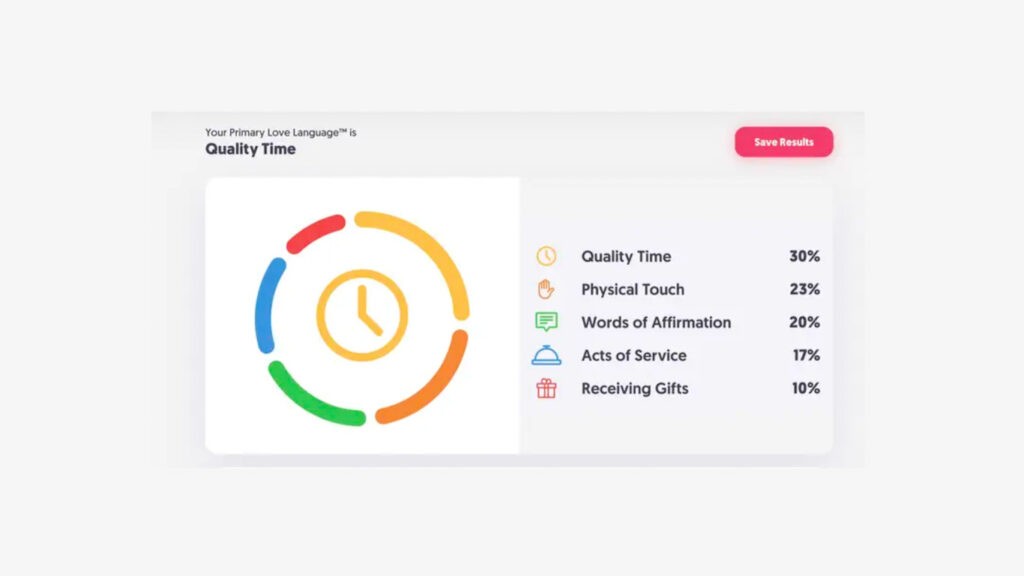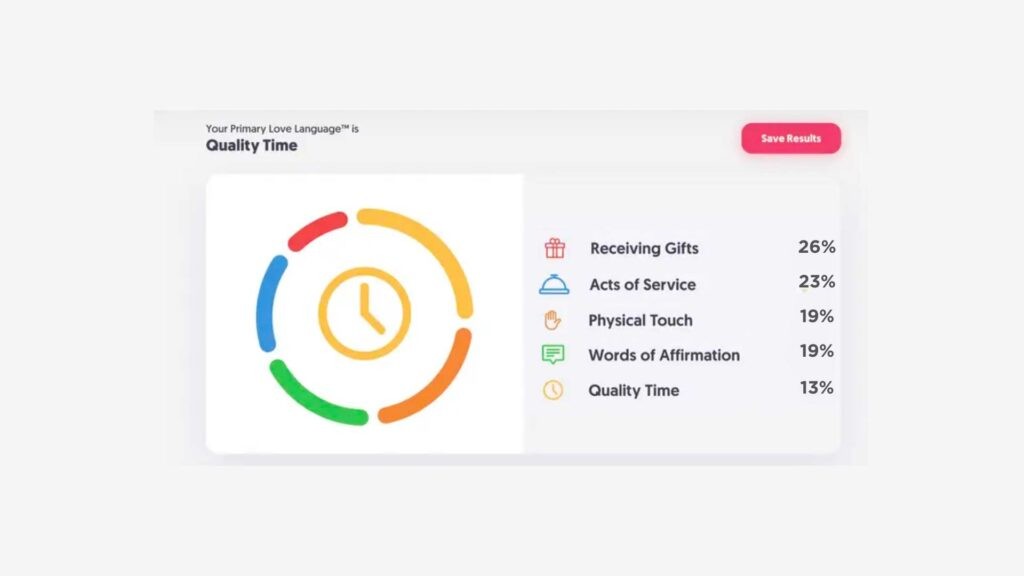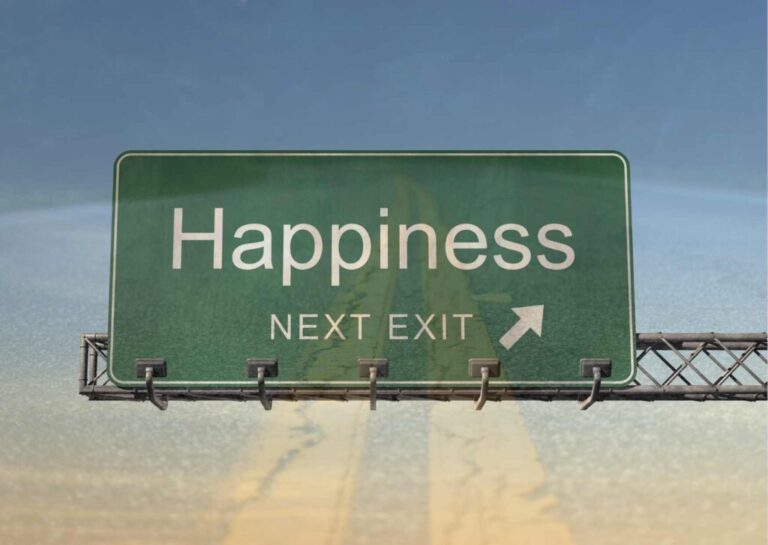
The 5 Love Languages is a theory that states that there are five general ways that romantic partners express and experience love. However, those who are familiar with this theory might be interested to learn that there is a 6th love language, which is happiness.
Personally and initially, I never suspected that there might be a 6th love language, let alone considering happiness as a possibility. I just read the book “The 5 Love Languages: The Secret to Love that Lasts” and faithfully applied its teachings in my own life for over 10 years.
However, after some time, no matter how much I practiced these 5 love languages, I still felt like something was missing and that the theory was somehow incomplete. Upon further reflection, I realized that in order to truly love and be loved by others, we need to do something extra. This means that in addition to the 5 love languages, we need to proactively express ourselves in a positive manner by being happy.
This positive affirmation goes beyond simply words of affirmation and other love languages. We must actively work to cultivate happiness in our lives in order to fully be able to give and receive love.
Quick Recap of the 5 Love Languages
“Love is like oxygen. Love lifts us up where we belong. All you need is love! The greatest thing you’ll ever learn is to love and be loved in return.” These inspiring words are from the musical Moulin Rouge. And while we agree that love is very important in our lives, it can often feel elusive and challenging to cultivate and maintain.
That is why the 5 love languages created by Dr. Gary Chapman are so significant and influential. They break love into five meaningful and tangible components that anyone can learn to cultivate in their lives, allowing anyone to create more love for themselves and their partners.
The 5 love languages are:
- Words of Affirmation – compliments and kind words;
- Acts of Service – helpful actions and doing things for others;
- Receiving Gifts – giving thoughtful and meaningful gifts;
- Quality Time – giving undivided attention and spending meaningful time together; and
- Physical Touch – physical affection like hugs, holding hands, or cuddling.
Each person has their own unique hierarchy of preferences when it comes to which one of these 5 love languages they prefer to receive the most and the least. This preference can vary from individual to individual and may also change over time.
Furthermore, when two people come together, it is common for them to discover that they indeed have different preferences in terms of how they like to express and receive love, and it is the responsibility of each partner to discover and address their unique preferences.
For example, here is an imaginary result from a quiz you can take for free on the official 5 love language website:
Example: Person A

- Quality Time: 30%
- Physical Touch: 23%
- Acts of Service: 20%
- Words of Affirmation: 17%
- Receiving Gifts: 10%
In this example, above all else, Person A prefers to spend the most quality time with others and receive gifts the least. However, this does not mean that this person does not like receiving gifts, but rather they value it three times less than spending quality time with others and two times less than hearing words of affirmation.
Example: Person B

- Receiving Gifts: 26%
- Acts of Service: 23%
- Words of Affirmation: 19%
- Physical Touch: 19%
- Quality Time: 13%
In this example, Person B has a more balanced distribution of preference across all 5 love languages. However, they still have a stronger preference for receiving gifts over spending quality time with others, with a ratio of two to one.
By combining these two people, we can see that there may be some potential incompatibility in terms of how they want to express their love languages, with both individuals needing to make an extra effort to give the other person the love language they desire the most.
Why is Happiness the 6th Love Language?
While researching this article, I googled what other people believe the 6th love language could be. Here are some other results I found: love for yourself, food, and feeling known. And while these ideas for the 6th love language could be valid, I still believe that happiness should be the 6th love language.
Indeed, understanding and practicing the 5 love languages can sometimes feel fake and exhausting, especially when we are trying to give a love language that doesn’t come naturally to us. For example, if gift giving is not important to us, but it is important to our partner, it can be challenging to consistently give in that way.
Furthermore, it’s worth asking why love seems so materialistic. Why do we feel the need to constantly prove our love by giving things like our energy, time, and attention? Why can’t we just be and feel love without constantly and endlessly doing something? For instance, if we don’t give enough gifts, compliments, acts of service, etc., why does that potentially lead to conflict? Why is love so conditional, with the mindset of “I will only love you if you give me this or that?”
In my personal opinion, true love is unconditional, and while expressing love through the 5 love languages is important, we should also feel like we and others are enough regardless of how much or little we give or receive. We should feel loved and lovable just for who we are, not solely based on what we give and receive from someone else.
This brings us to the concept of happiness. Love is a positive emotion, so we should cultivate happiness in our own lives. When we are happy and positive, we become better human beings who are both lovable and loving. Others are naturally drawn to our positive energy, while negativity is a turn-off, and people generally don’t want to be around individuals who constantly bring them down with constant nagging, complaining, and bringing everyone’s mood down.
Therefore, loving and being loved requires emotional intelligence. It’s about being happy and influencing others with our happiness, not through materialistic expressions of affection, but simply by the fact that our presence brings joy.
This is something I felt was missing in the 5 love languages. Despite my constant expressions of affection and giving, it never seemed to be enough. I always felt like my love was conditional and when I would stop showing love in the expected ways, I would be labeled as “not enough” and faced discouraging remarks.
In this way, I highly recommend everyone to cultivate happiness in our lives, to put our best foot forward every single time, and to be a positive and happy influence that others want to be around, not because they are getting something specific from us, but because they enjoy our positive personalities.
This perspective aligns with what we teach here at Optimal Happiness, as research supports that happy people receive better responses from their loved ones, friends, colleagues, and even strangers, while negative people tend to repel others. So, if you want to learn more about happiness, you’ve come to the right place. Your happiness is our priority, and we hope to inspire you with our best happiness tips (for example, check out our blog!).
In conclusion, while the 5 love languages have their value, it’s important to remember that love should be unconditional, and our worth should not be dependent on the materialistic expressions of affection. Instead, we should focus on cultivating happiness within ourselves and being positive influences in the lives of others.
















2 thoughts on “The 6th Love Language is Happiness”
Thank you for being the light of the world.
Thank you for helping to make this light even brighter!